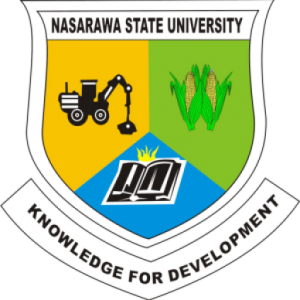- Home
- About
- Faculties
- Units
- Directorates
- Academic Planning
- Chemical & Research
- Entrepreneurship Development Studies
- General Studies
- Health Services
- Information and Communication Technology (ICT)
- Information and Protocol
- Linkages and International Co-operation
- NSUK Consult
- Physical Planning
- Research, Innovation and Enterprise
- Security Unit
- SIWES
- Student Affairs
- Quality Assurance & Servicom
- Works and Maintenance
- Bursary
- Registry
- Directorates
- Admission
- Schools
- Centers
- Centers
- Government and Financial Accounting Research Center (GAFARC)
- Center for Cyberspace Studies
- Jose Centeno International Center for Medical Geology Research (JACMedGeo)
- NSUK-UNEP/EBAFOSA Center for Climate Action
- Centre for Continuing Studies
- Center for Environmental and Sustainable Development Studies
- Centre for Gender Studies
- Centre for Sustainable Agriculture and Rural Development
- Solomon Lar Institute for Citizenship & Democratic Studies
- Institutes
- Centers
- TETFUND
- About TETFUND
- Interventions
- Physical Infrastructure/Programme Update
- Academic Staff Training and Development
- Teaching Practice
- Institution Based Research
- Conference Attendance
- National Research Fund
- Special Intervention
- Library Developement
- ICT Support
- Academic Research JournaL
- TETFUND Project Maintenance
- Equipment Fabrication
- Entrepreneurship
- Academic Manuscript Development
- Disaster Recovery
- High Impact
- Zonal Interventions
- LMS
- Portal
P.M.B 1022, Keffi, Nigeria
- Home
- About
- Faculties
- Units
- Directorates
- Academic Planning
- Chemical & Research
- Entrepreneurship Development Studies
- General Studies
- Health Services
- Information and Communication Technology (ICT)
- Information and Protocol
- Linkages and International Co-operation
- NSUK Consult
- Physical Planning
- Research, Innovation and Enterprise
- Security Unit
- SIWES
- Student Affairs
- Quality Assurance & Servicom
- Works and Maintenance
- Bursary
- Registry
- Directorates
- Admission
- Schools
- Centers
- Centers
- Government and Financial Accounting Research Center (GAFARC)
- Center for Cyberspace Studies
- Jose Centeno International Center for Medical Geology Research (JACMedGeo)
- NSUK-UNEP/EBAFOSA Center for Climate Action
- Centre for Continuing Studies
- Center for Environmental and Sustainable Development Studies
- Centre for Gender Studies
- Centre for Sustainable Agriculture and Rural Development
- Solomon Lar Institute for Citizenship & Democratic Studies
- Institutes
- Centers
- TETFUND
- About TETFUND
- Interventions
- Physical Infrastructure/Programme Update
- Academic Staff Training and Development
- Teaching Practice
- Institution Based Research
- Conference Attendance
- National Research Fund
- Special Intervention
- Library Developement
- ICT Support
- Academic Research JournaL
- TETFUND Project Maintenance
- Equipment Fabrication
- Entrepreneurship
- Academic Manuscript Development
- Disaster Recovery
- High Impact
- Zonal Interventions
- LMS
- Portal



